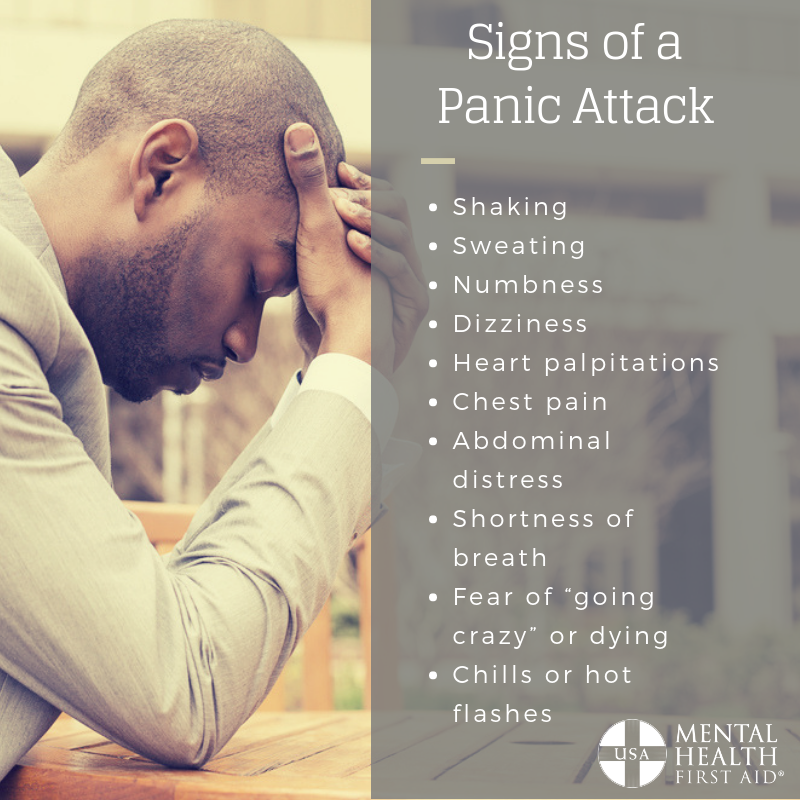Six million American adults have panic disorder, meaning they experience repeated episodes of intense fear called panic attacks.
Do you know what to do if you see someone experiencing one?
If not, don’t worry. This guide will explain how to help someone who is having a panic attack so you’ll feel prepared if you ever encounter a person who needs help.
Before you can help a person who is having a panic attack, you need to know if it’s because of fear or anxiety they’re experiencing or if there’s a physical explanation.
Here are 10 symptoms of panic attacks to look for:

IMPORTANT NOTE: Do these symptoms look familiar? They’re also signs of cardiac distress. It’s difficult to know if a person is experiencing a panic attack or a heart attack.
The best thing to do is ask if the person has had a panic attack before. If they haven’t and they don’t think they’re having one now, call 9-1-1 and follow physical first aid protocol. If the person loses consciousness, call an ambulance, check for breathing and pulse and apply physical first aid principles. You can also check for a medical alert bracelet or necklace for more information.
If you suspect someone is having a panic attack, Mental Health First Aid teaches you to follow the ALGEE action steps:
IMPORTANT NOTE: You might have seen on TV that people having panic attacks should breathe into a paper bag. This is no longer considered a best practice because the person ends up breathing in carbon dioxide, which could cause them to pass out. If someone is breathing rapidly, don’t call attention to their breathing. Simply stay calm and model a steadier breathing rate.
Here are some useful resources you can share:
Anxiety and Depression Association of America
National Alliance on Mental Illness
To learn more strategies for supporting people, take Mental Health First Aid. The course will teach you how to identify, understand and respond to signs of mental health or substance use issues. Become part of a movement to change the culture around mental health.
And don’t forget: After you’ve helped someone, remember to practice self-care. It’s not easy to help a person experiencing a mental health issue, so it’s important to take time for yourself.
Finally, be proud! Even if you’ve just read this article, you’re one step closer to helping someone in their time of need.